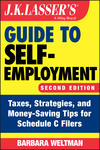March 31, 2019 9:11 pm
2019 List of Dirty Dozen Tax Scams
The IRS has released its annual list of the top 12 tax scams that taxpayers should avoid (IR-2019-49). They are essential the same as last year, although some scams are featured more prominently than before. The top tax scams are:
- Phishing (IR 2019-26): Taxpayers should be alert to the ongoing threat of fake emails or websites looking to steal personal information. Keep in mind that the IRS never initiates contact with taxpayers via email about a bill or tax refund.
- Phone Scams (IR-2019-28): Phone calls from criminals posing as IRS agents remain an ongoing threat to taxpayers. The phone scams, or “vishing” (voice phishing) threaten taxpayers with police arrest, deportation and license revocation, among other things, which is something the IRS will never do.
- Identity Theft (IR-2019-30): Despite a steep drop in tax-related identity theft in recent years, taxpayers should remain alert to tactics aimed at stealing their identities. This is so not just during the tax filing season, but all year long.
- Return Preparer Fraud (IR-2019-32): While the vast majority of tax professionals provide honest, high-quality service, there are some unscrupulous return preparers. Be careful in selecting a paid professional.
- Inflated Refund Claims (IR-2019-33): Steer clear of preparers who ask clients to sign a blank return, promise a big refund before looking at taxpayer records, or charge fees based on a percentage of the refund. These are indications that they are con artists who are up to no good and taxpayers end up paying the price.
- Falsifying Income and Creating Bogus Documents (IR-2019-35). Avoid any schemes involving falsifying income, including the creation of bogus Forms 1099. This is done to enable taxpayers to claim refundable credits (e.g., earned income credit) to which they are not entitled.
- Falsely Padding Deductions on Returns (IR-2019-36): Don’t be tempted to falsely inflate deductions or expenses on tax returns to pay less than what’s owed or potentially receive larger refunds. Think twice before overstating charitable contributions, medical expenses, and business expenses.
- Scams Involving Disasters and Charitable Causes (IR-2019-39): Groups masquerading as charitable organizations solicit donations from unsuspecting contributors, especially following disasters. Be wary of charities with names similar to familiar or nationally-known organizations and check the status of charitable organizations at https://apps.irs.gov/app/eos/.
- Excessive Claims for Business Credits (IR-2019-42): Avoid improperly claiming the research credit or the fuel tax credit (which is a tax benefit usually limited to off-highway business use in farming). The Treasury Inspector General for Tax Administration recently found (https://www.treasury.gov/tigta/auditreports/2019reports/201940014fr.pdf) many bogus research credits used as offsets to the employer share of Social Security taxes.
- Offshore Tax Avoidance (IR-2019-43): Successful enforcement actions against offshore cheating show it’s a bad bet to hide money and income offshore, which can lead to severe civil and criminal penalties. People involved in offshore tax avoidance are best served by coming in voluntarily and getting caught up on their tax-filing responsibilities.
- Frivolous Tax Arguments (IR-2019-45): Frivolous tax arguments, such as unreasonable and outlandish claims about the legality of paying taxes, may be tried as a way to avoid paying tax. But taxpayers can wind up paying a penalty of $5,000 for filing a frivolous tax return. Read the IRS report from last year on “The Truth about Frivolous Tax Arguments” (https://www.irs.gov/privacy-disclosure/the-truth-about-frivolous-tax-arguments-introduction).
- Abusive Tax Shelters, Trusts, and Conservation Easements (IR-2019-47): The IRS is committed to stopping complex tax avoidance schemes and the promoters who create and sell them. When in doubt, taxpayers should seek an independent opinion regarding complex products they are offered.
advertisement
Featured Books
Tax Glossary
Real property
Land and the buildings on land. Buildings are depreciable.



